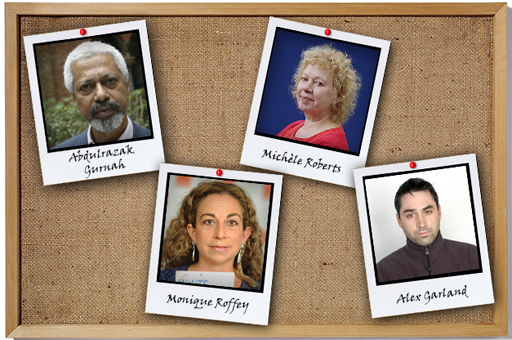5.3 Using yourself

Explore various sources for new fictional characters – where do they come from and how are they developed?
You’ve already done some work on how and where to find and research your characters. Here novelists talk about how they have used themselves in their fiction, often as a starting point for the creation of someone very different.
Transcript
As you’re listening to Abdulrazak Gurnah, Michèle Roberts, Monique Roffey and Alex Garland, make a note of any approaches to finding characters that:
- are similar to your own
- seem quite different but which you might like to try.
